Hossam el-Hamalawy is a photojournalist and a member of the Egyptian Revolutionary Socialists.
عربي
In addition to the hundreds of thousands of Syrian refugees in Germany, tens of thousands of whom have settled in Berlin, the German capital has become a refuge for political exiles and asylum-seekers from across the Arab world, following the authoritarian backlash to the popular revolutions that swept the region in 2011. As counterrevolutionary regimes resolidified their rule—often with Western backing, most of all in Egypt under Abdel Fattah al-Sisi—they unleashed a wave of state-sponsored terror, targeting dissent of any kind. Along with economic policies that ravaged most people's livelihoods, Sisi's crackdown drove many activists, journalists, intellectuals and others who had joined Egypt's revolution to seek better lives elsewhere.
It is difficult to estimate the exact number of this new Egyptian diaspora in Germany. I am among them. In recent weeks, I met some of my fellow Egyptians who have found a new home in Berlin.
All photos by Hossam el-Hamalawy
Ahmed Said
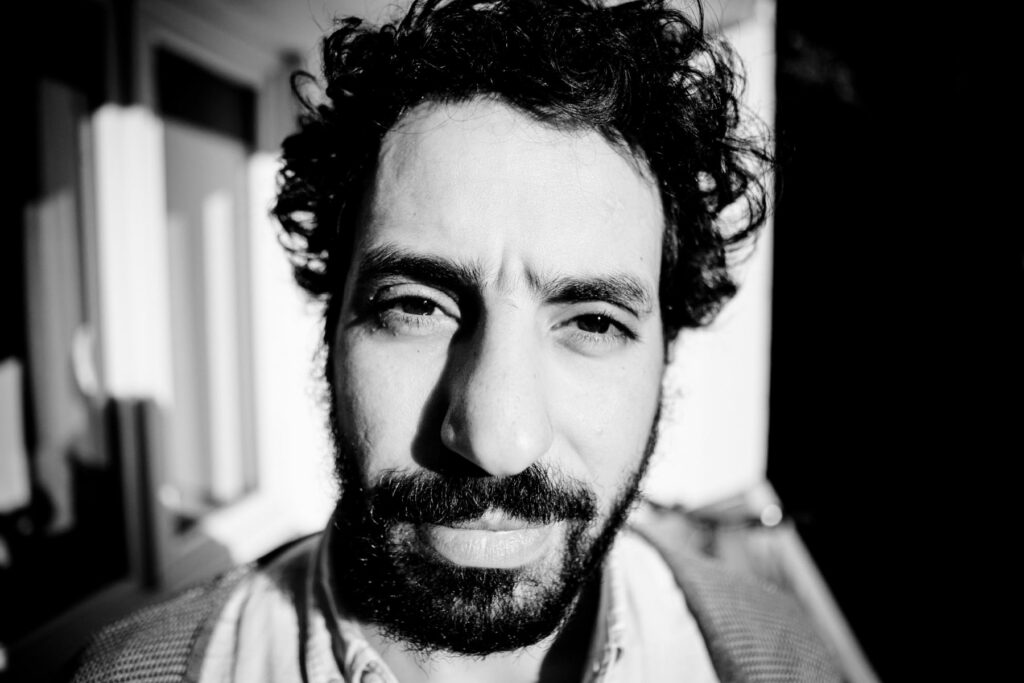
Born in the Nile Delta city of Mansoura, 39-year-old Ahmed Said studied medicine and worked as a surgeon for years in Egypt. He became politically active in the Palestine solidarity movement and in protests again the Iraq War, as well as the pro-democracy Kefaya movement ("Enough") that organized the first demonstrations against then-President Hosni Mubarak's autocratic rule.
Said left Egypt to work as a surgeon in Saudi Arabia, in Riyadh, but returned to his country to join the protests in Tahrir Square with the outbreak of Egypt's popular revolution on Jan. 25, 2011. After Mubarak resigned, Said volunteered in the makeshift hospitals set up by the revolutionaries to treat the injured during the series of subsequent street uprisings against the ruling Supreme Council of the Armed Forces, or SCAF, throughout 2011.
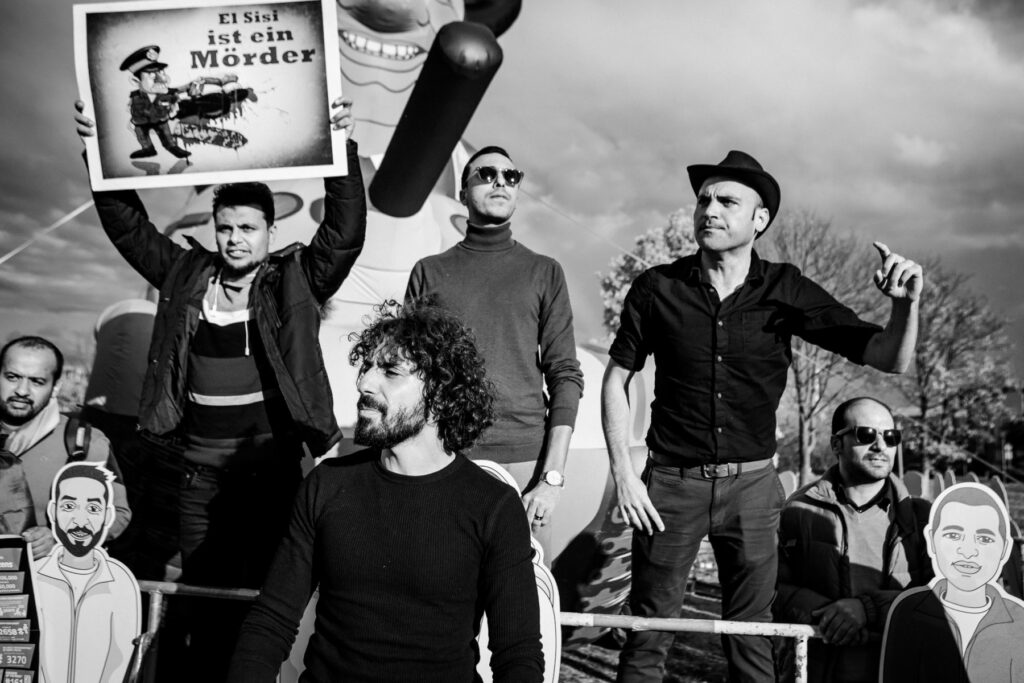
Said first arrived in Germany in 2013, to work as a surgeon in Frankfurt. He was detained by the Egyptian police on Nov. 19, 2015, after he organized a protest in Cairo marking the anniversary of the battle of Mohamed Mahmoud Street in downtown Cairo, during a brief visit home.
Said was tortured and taken to the notorious Scorpion Prison, where he spent a year and was only released after an international solidarity campaign on his behalf. He continues to be politically active in Berlin, in both German leftist and Egyptian exile circles.
Safwan Mohamed
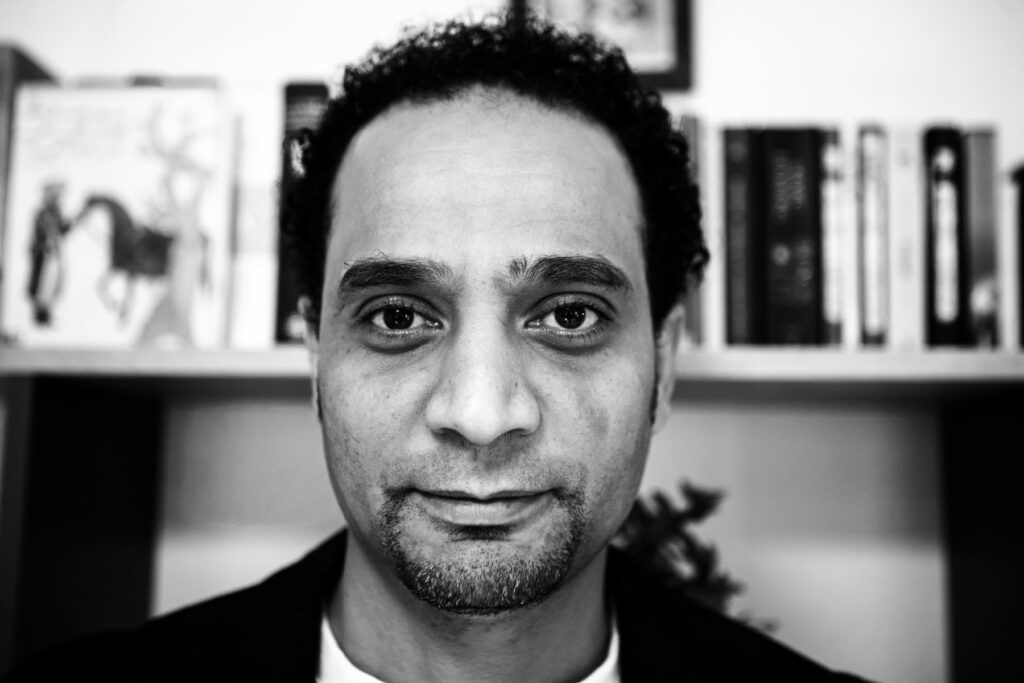
Born in Alexandria, 38-year-old Safwan Mohamed was a central figure in the coastal city's youth activist scene prior to the 2011 revolution. Part of the Kefaya movement's branch in Alexandria, Mohamed was also one of many activists rounded up during the Mubarak regime's crackdown on dissidents who tried to mobilize for a general strike on April 6, 2008. He spent roughly a month in Alexandria's Borg el-Arab prison.
The following year, he joined other activists in co-founding the National Assembly for Change, headed by Mohamed el-Baradei, the Nobel prize-winning former director of the International Atomic Energy Agency, in an attempt to open up the political spectrum in Egypt and push for an alternative to Mubarak in presidential elections.
With the brutal murder of Khaled Said, a young Alexandrian man, at the hands of the police in the summer of 2010, Mohamed helped organized protests against police torture, which were credited with sparking the 2011 uprising a few months later. After helping organize the mass protests against Mubarak in Cairo, Alexandria and other cities that propelled the revolution, he later ran for a parliamentary seat in the first post-Mubarak elections in November 2011.
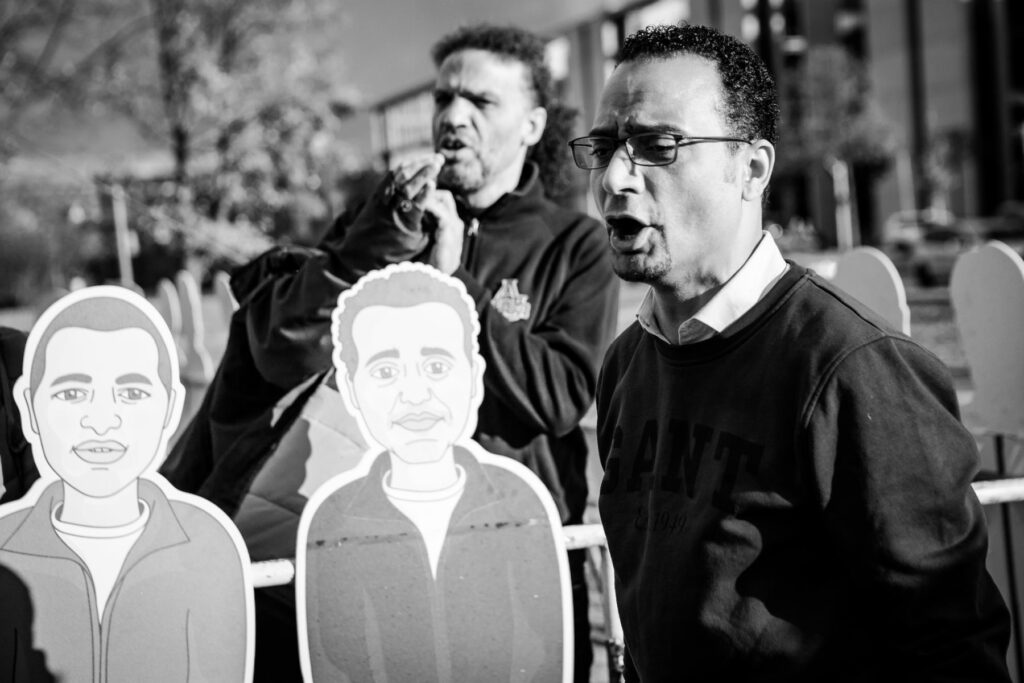
After the July 2013 coup that ousted Mohamed Morsi as president, Mohamed faced repeated threats from Sisi's new regime and was briefly arrested. Sisi's regime then fabricated terror charges against Mohamed in 2016, ludicrously accusing the secular liberal activist of membership in an armed Salafi jihadist group. Squashing dissent in the name of fighting terror has been a cornerstone of Sisi's dirty war.
Mohamed left Egypt in December 2016, seeking asylum in Germany. He now lives in Berlin, where he continues to be politically active in the community of Egyptian and other Arab exiles.
Aly El Raggal
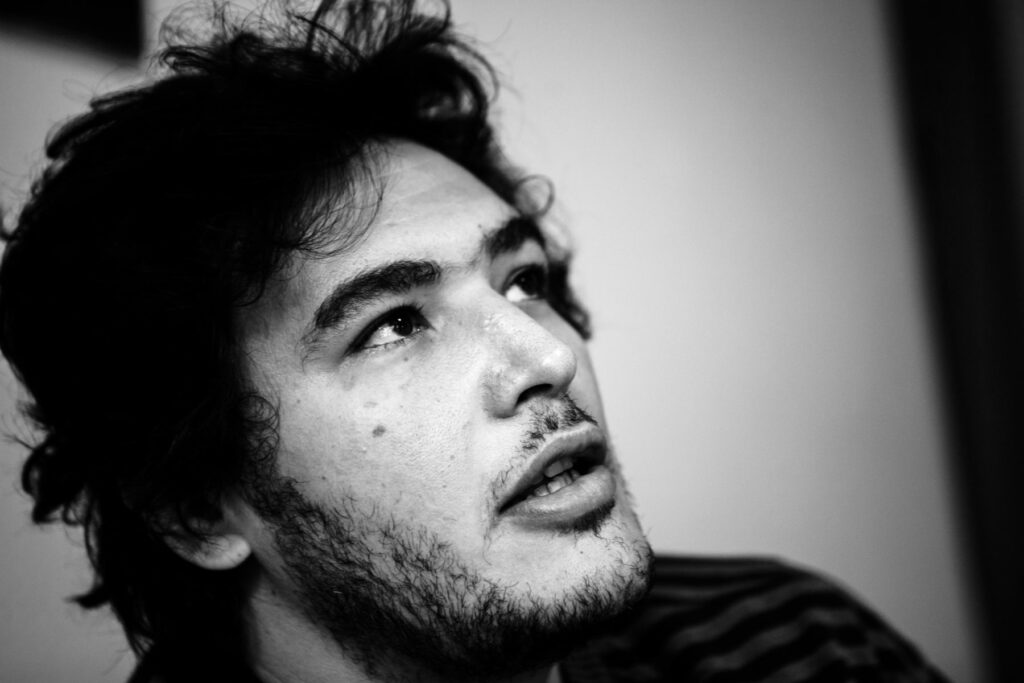
Born in Alexandria, 37-year-old Aly El Raggal is a political activist and intellectual whose academic work is widely read in dissident circles. After studying engineering in his hometown, he decided to leave Egypt to continue his postgraduate studies in political sociology in Austria.
Prior to Egypt's revolution, he was active in Kefaya and in Alexandria's various leftist political campaigns, most notably against police torture. He took part in the 2011 uprising against Mubarak and the popular mobilizations that followed against Egypt's military. He also managed the parliamentary electoral campaign of his close friend Safwan Mohamed.
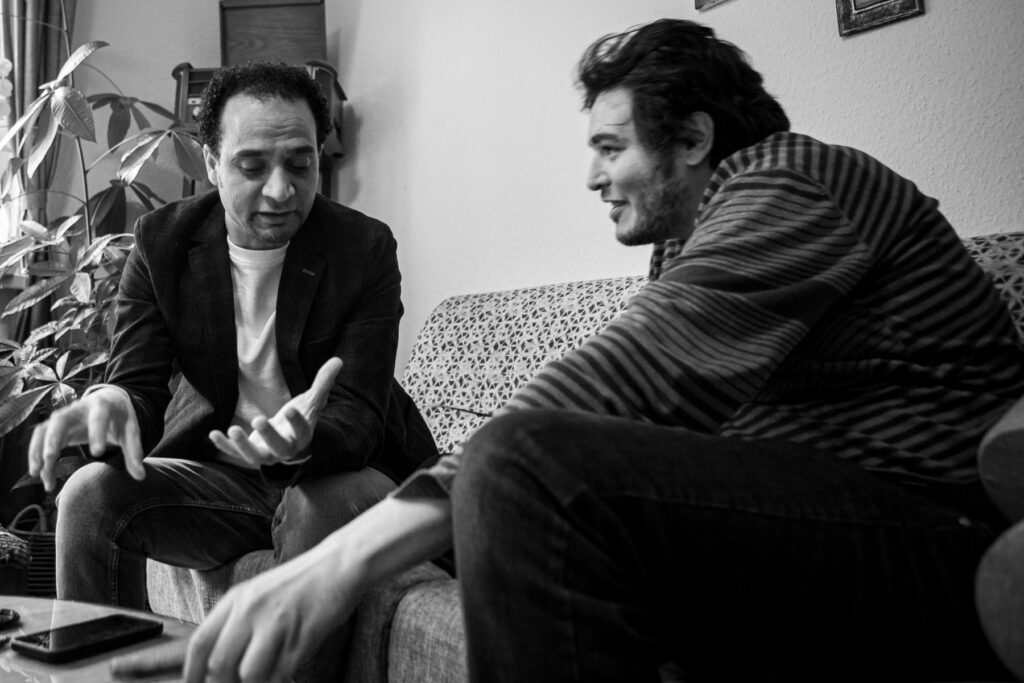
El Raggal, who has identified himself as a Marxist since 2013, has already established himself as one of Egypt's leading political researchers. He has done extensive work on the executive and the judicial branches of the Egyptian state, namely the police, prosecutors and the judiciary.
El Raggal is no stranger to Berlin. He regularly visited the German capital for years, but recently decided to reside in the city in order to pursue his academic research in a safer environment.
Amr Magdi
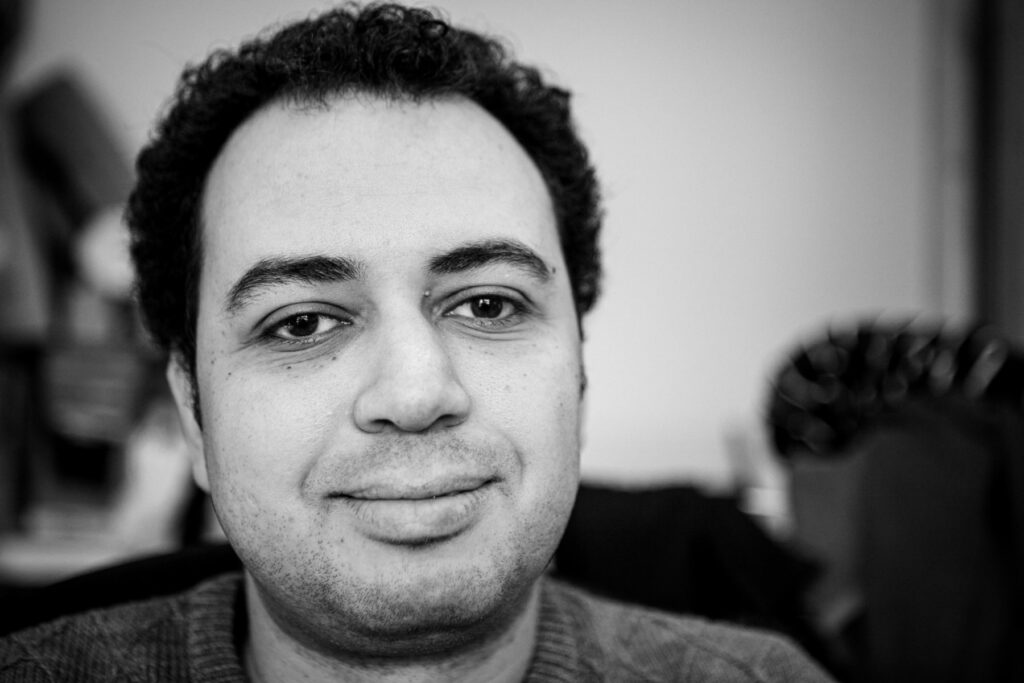
Born into an Egyptian expat family in al-Qassim, Saudi Arabia, 37-year-old Amr Magdi was active in campus politics as a medical student in Egypt. He graduated shortly before the 2011 revolution, earning a bachelor's degree in medicine and surgery from Cairo University, where he worked as a resident doctor for a year.
During his studies at Cairo University, Magdi also started working as a freelance journalist for a number of Egyptian and international media outlets. With the revolution, he decided to follow his passion, quitting his medical career and joining the Arab Network for Human Rights Information in Cairo as its research director in 2012. By the end of that year, he left Egypt for Sweden to continue his postgraduate education in Middle Eastern studies at Lund University.
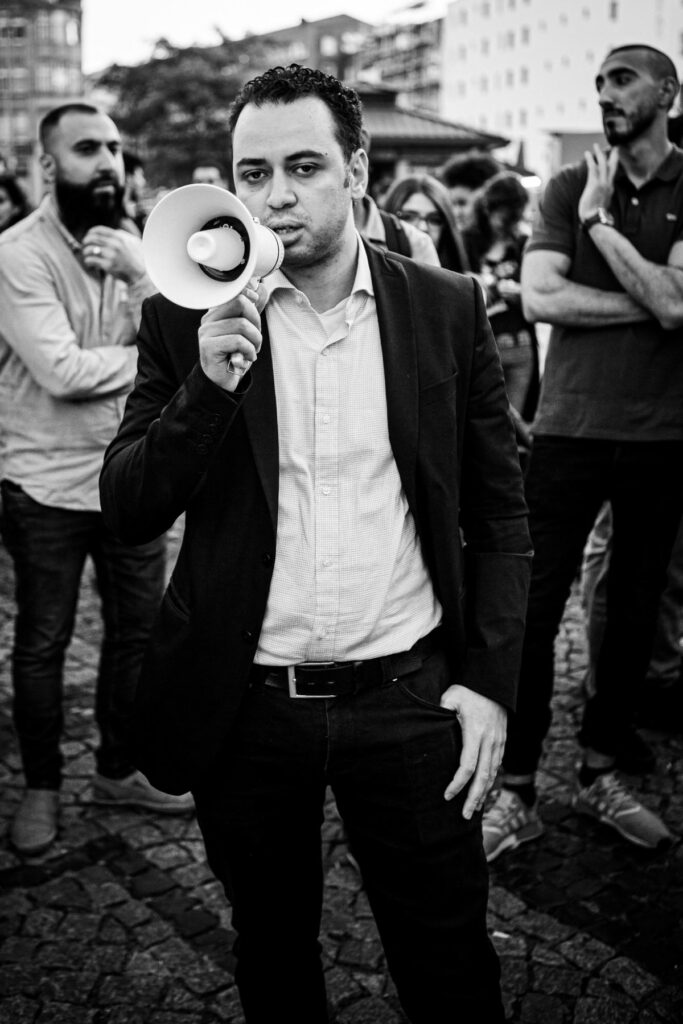
Magdi spent the following two years traveling back and forth between Egypt and Sweden, helping to document some of the grotesque abuses of military rule following the July 2013 coup. A year after the coup, he felt it was getting more unsafe for independent activists in Egypt, as Sisi's repression widened in scope, to include all forms of dissent, journalism and independent research.
He is now based in Berlin, where he works as a senior researcher in Human Rights Watch's Middle East and North Africa division.
Amr Abdelwahab
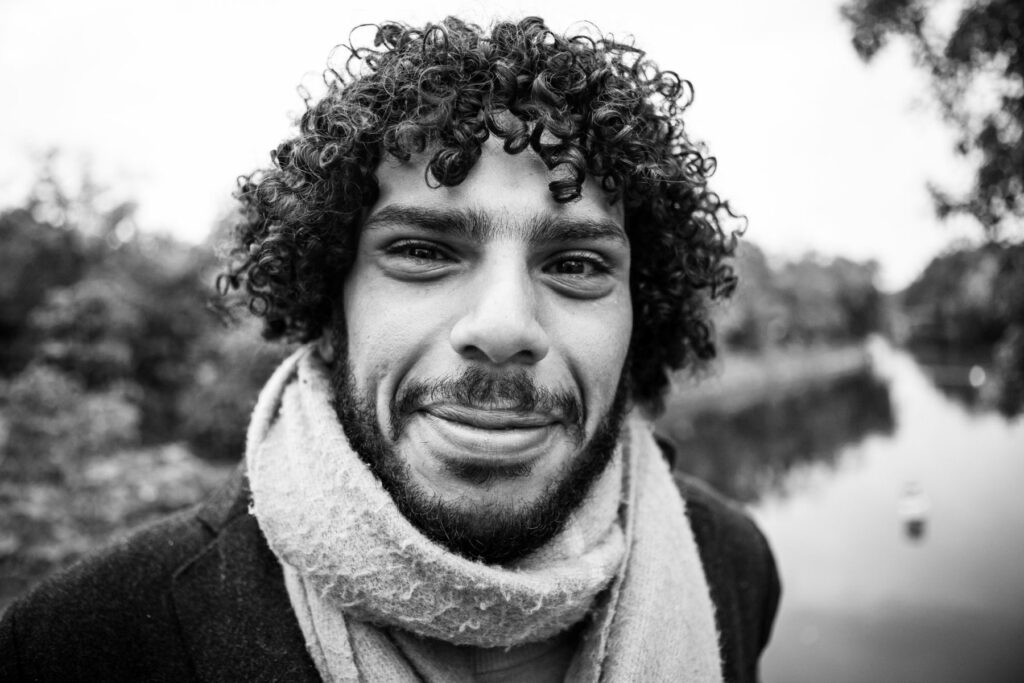
Born in Cairo, 31-year-old Amr Abdelwahab was active in Palestine solidarity circles and BDS—the boycott, divestment and sanctions movement against Israel—prior to the 2011 revolution. As an avid football fan, he was also among the first generation of the Ultras Ahlawy, the diehard fans of Cairo's al-Ahly club who were a visible force in the revolution's street politics.
When the uprising broke out, Abdelwahab, who was studying engineering then at the German University in Cairo, joined the protests with his fellow students. The campus was a hotbed of activism and revolutionary fervor.
Students at GUC continued to be at the forefront of student activism in Egypt, providing a seemingly endless stream of protesters who took to the streets of Tahrir Square to demonstrate against military rule under the SCAF. On campus, students also mobilized against the repressive university administration, which had links to Mubarak's National Democratic Party.
Abdelwahab played a leading role in this vibrant scene of student activist and was elected as the head of the GUC student union in late 2011, becoming the first leftist to assume the presidency of a student union in Egypt since the late 1970s. Following Sisi's coup and the massacre of the sit-in at Rabaa al-Adawiya Square, Abdelwahab left Egypt in September 2013 to work in Hungary. After returning to Cairo a year later, he was detained several times by the National Security Agency, until he decided to leave the country for good by the end of 2015. He worked for a few more years in Hungary, before settling in Berlin by September 2017, where he still resides, working as a software engineer, and tirelessly campaigns for the release of political detainees in Sisi's jails.
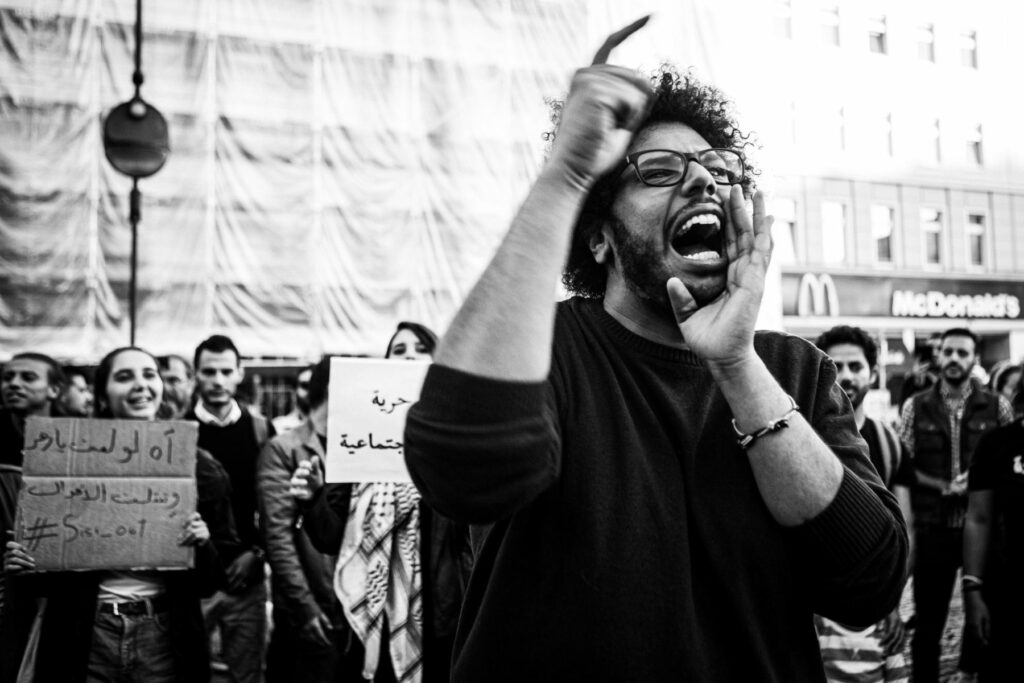
Hossam el-Hamalawy's entire photography archive is available on Flickr under Creative Commons license, which allows for its commercial and non-commercial use, free of charge. If you want to support his work, please consider leaving a donation at his PayPal.


































![Security forces loyal to the interim Syrian government stand guard at a checkpoint previously held by supporters of deposed president Bashar al-Assad, in the town of Hmeimim, in the coastal province of Latakia, on March 11, 2025. Syria's new authorities announced on March 10, the end of an operation against loyalists of deposed president Bashar al-Assad, after a war monitor reported more than 1,000 civilians killed in the worst violence since his overthrow. The Syrian Observatory for Human Rights said the overwhelming majority of the 1,068 civilians killed since March 6, were members of the Alawite minority who were executed by the security forces or allied groups. (Photo by OMAR HAJ KADOUR / AFP) / “The erroneous mention[s] appearing in the metadata of this photo by OMAR HAJ KADOUR has been modified in AFP systems in the following manner: [Hmeimim] instead of [Ayn Shiqaq]. Please immediately remove the erroneous mention[s] from all your online services and delete it (them) from your servers. If you have been authorized by AFP to distribute it (them) to third parties, please ensure that the same actions are carried out by them. Failure to promptly comply with these instructions will entail liability on your part for any continued or post notification usage. Therefore we thank you very much for all your attention and prompt action. We are sorry for the inconvenience this notification may cause and remain at your disposal for any further information you may require.”](https://dawnmena.org/wp-content/uploads/2025/04/syria-22039885951-360x180.jpg)




